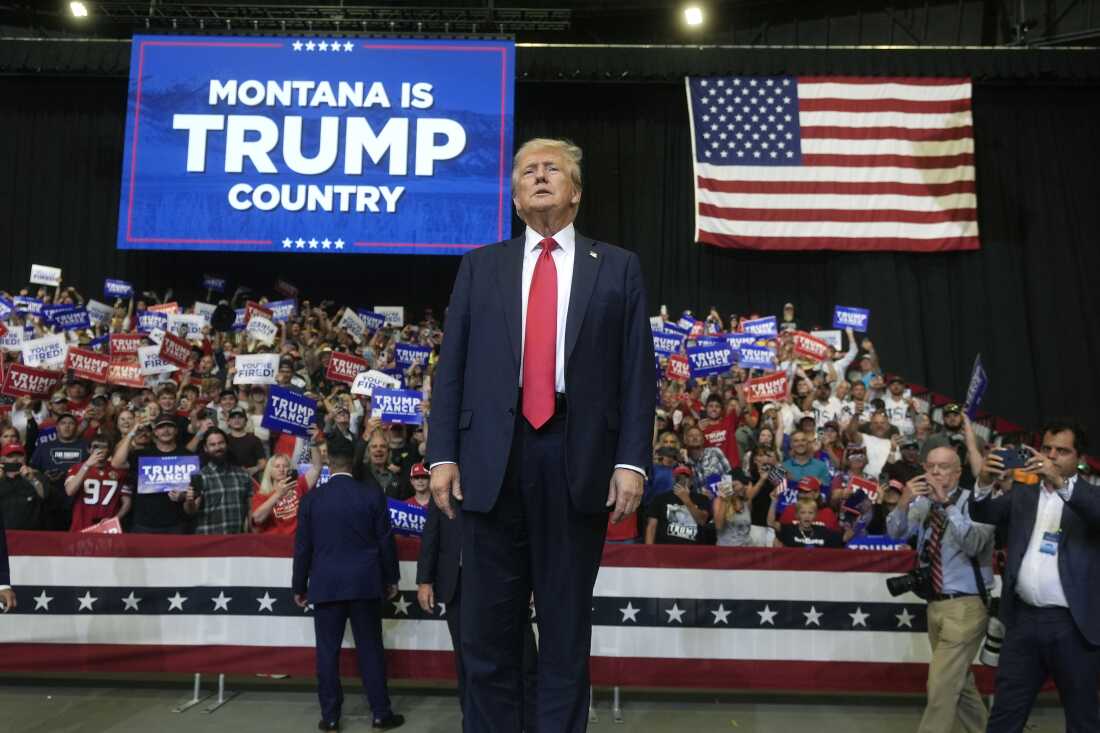
Former President Donald Trump arrives for a campaign rally in Bozeman, Montana, on Friday, August 9.
by Rick Bowmer/AP
Hide caption
active caption
by Rick Bowmer/AP
WASHINGTON (AP) — The FBI said Monday it is investigating allegations that sensitive Trump campaign documents were stolen in a computer intrusion just days after the campaign said it had been hacked by Iran.
The FBI released a brief statement saying, “We can confirm that the FBI is investigating this matter.”
The campaign did not provide specific evidence of Iranian involvement, but the request came shortly after Microsoft published a report detailing attempts by foreign agents to interfere in the U.S. 2024 campaign. The report cited an instance in June of an Iranian military intelligence unit sending “a spear-phishing email to a high-ranking presidential campaign official from a compromised email account of a former senior adviser.”

Politico reported Saturday that it began receiving emails on July 22 from an anonymous account. The source, an AOL email account identified only as “Robert,” forwarded what appeared to be a research dossier the campaign had apparently done on the Republican vice presidential nominee, Ohio Sen. J.D. Vance. The document was dated Feb. 23, nearly five months before Trump picked Vance as his running mate.
“These documents were obtained illegally” and “were intended to interfere with the 2024 election and sow chaos in our democratic process,” Trump campaign spokesman Steven Cheung said.
Asked about the Trump campaign’s claims, Iran’s mission to the United Nations denied its involvement.

However, Iran has long been suspected of conducting hacking campaigns targeting its enemies in the Middle East and beyond. Tehran has also long threatened to retaliate against Trump for the 2020 drone strike he ordered that killed prominent Revolutionary Guard general Qassem Soleimani.
In its report, Microsoft said that “foreign malign influence surrounding the 2024 U.S. election began slowly but has gradually gained traction over the past six months, initially driven by Russian operations and more recently by Iranian activities.”
The analysis continues: “Iranian cyber-enabled influence operations have been a consistent feature of at least the last three U.S. election cycles. Iran’s operations have been notable and distinguishable from Russian campaigns by appearing later in the election season and by employing cyberattacks geared more toward election conduct than voter influence.”
“Recent activity suggests that the Iranian regime, along with the Kremlin, may be equally engaged in the 2024 elections,” Microsoft concluded.





